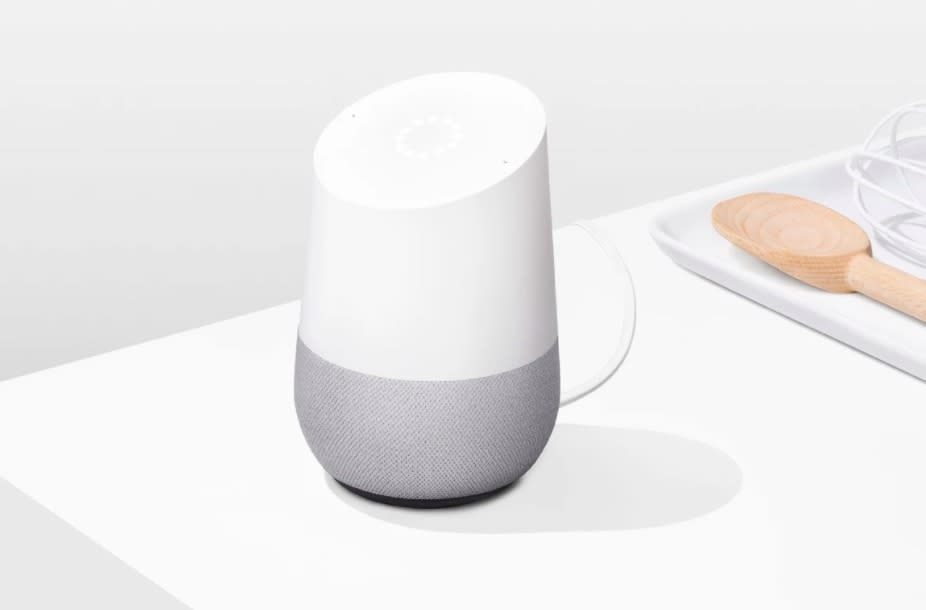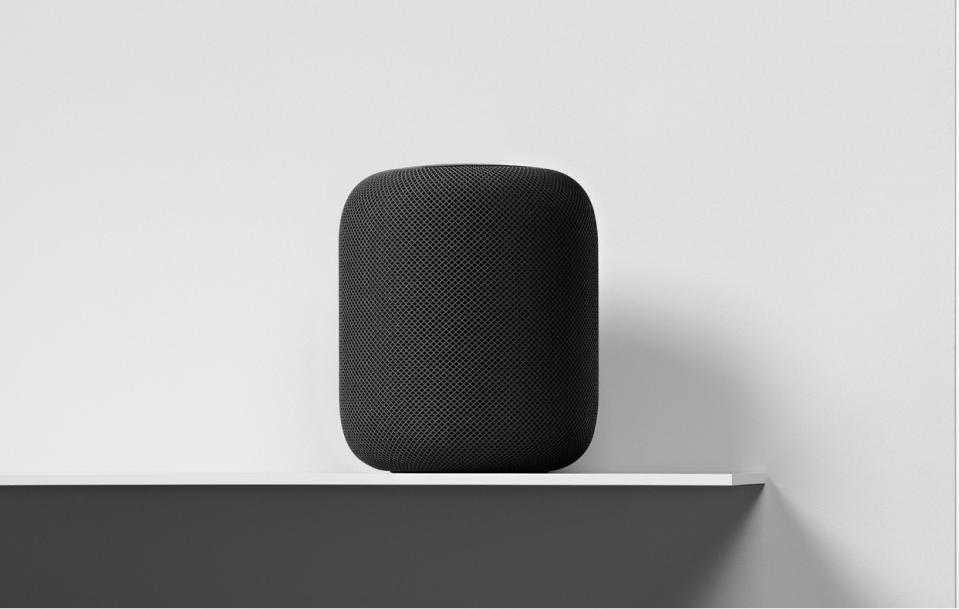Smart speakers are haunting my home

My apartment is haunted. Disembodied voices randomly echo off the egg-shell white walls of my humble abode, playing Taylor Swift and trying to get my attention with bright flashing lights. It’s almost as scary as forgetting my phone at home and having to actually interact with the real world.
OK, nothing is that scary, and my place isn’t really haunted. But if it was, it would help to explain the sheer number of times my Amazon (AMZN) Echo, Apple (AAPL) HomePod and Google (GOOG, GOOGL) Home activate on their own. A few times each week Alexa, Siri or Assistant will pipe up and tell me they can’t do a particular task, ask for clarity on a question I didn’t ask or simply begin playing music without my direction.
At this point, I’d almost rather have a spectral child asking me to play with him or her forever and ever than have to tell Siri, Alexa or Assistant to shut up, again. Actually, I take that back. I never want a ghost kid haunting me. They’re so needy.
Either way, I’m not the only person who is experiencing these kinds of accidental activations. Search the web for anything having to do with “Echo turns on by itself,” and you’ll get a long series of links pointing to consumers who’ve had their digital assistants make unwelcome intrusions into their conversations.

You can do the same search for Google Home and get similar results. Apple’s HomePod doesn’t return as many results, but it’s also been on the market for only about a month, less time than Amazon’s and Google’s assistants, so fewer people likely own it at this point.
The issue here is that my three digital assistants are misinterpreting portions of my everyday conversations as their individual activation phrases. To be clear, I still use these three assistants on a daily basis. I ask them to play music, ask them for a weather and traffic update, yell obscene things at them to see how they’ll reply and ask inane questions like how to mince garlic.
I also find these occasional interruptions pretty funny when they happen mid conversation with someone. It’s been interesting to see what seemingly innocuous phrases trip up these assistants. “Hey, sweetie,” regularly activates the HomePod, which thinks I’m saying “Hey, Siri.” My New Jersey accent combined with how quickly I talk when I’m overly excited causes Alexa to kick on when I say “And so.”
My personal dictation issues aside, the Echo and Home, specifically, have also fallen victim to trolling from TV shows like “South Park” and commercials for Burger King, both of which tried to activate users’ devices on purpose.
More recently, Amazon’s Alexa was laughing at users after being inadvertently triggered to do so. Amazon quickly issued a fix to the voice assistant that made it harder to activate the laugh, after videos of the Echo cackling at users went viral.

When it comes to the Echo, Amazon gives you the ability to change the launch phrase for Alexa from, well, “Alexa”, to “Computer” or any phrase you like. It also means you can pretend to be Captain Jean-Luc Picard from “Star Trek: The Next Generation.” And we all know Picard is the superior captain. Sorry Shatner fans.
A more extreme solution is to silence the speakers entirely. The Echo, HomePod and Home all have their own microphone mute buttons. So, if you don’t want any of them listening to what you say out of fear of inadvertently activating them, you can simply disable the mic and that’s that. But that also means having to switch the mic back on whenever you want to use the speakers’ voice control features.
Your best bet is to simply deal with the occasional annoyance of having your smart speaker switch on at the odd moment here and there. My personal situation is far from normal since I have so many speakers in a “1.5” bedroom apartment. In other words, the vast majority of people won’t notice their assistants turning on as much as my fiancé and I do.
What’s more, Amazon, Apple and Google are all constantly issuing updates for their respective devices to help them cut down on accidental triggers. It might not seem like it, but we’re still in the very early days of these smart assistants, which means they’ll only get better from here.
More from Dan:
Despite Trump’s meeting, video games and violence still down add up
Vero is the anti-Facebook social network everyone is talking about
Sony’s PlayStation Vue just became an even better cable TV killer
Samsung’s Galaxy S9 and S9 Plus bring major camera improvements
Email Daniel Howley at [email protected]; follow him on Twitter at @DanielHowley.
Follow Yahoo Finance on Facebook, Twitter, Instagram, and LinkedIn
